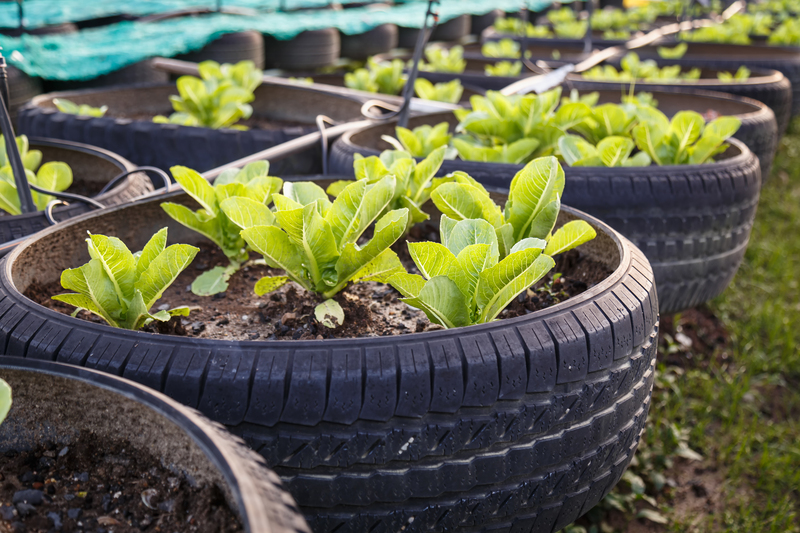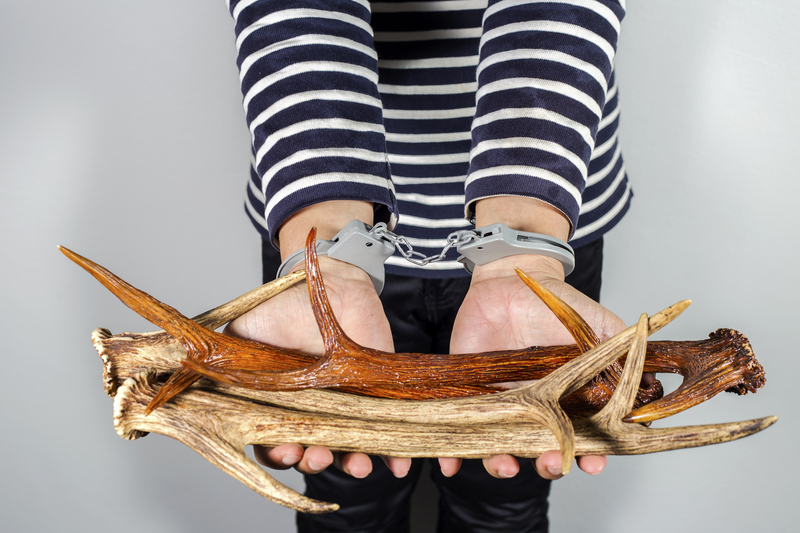How to Reuse or Recycle Pots and Pans in Your Community
Are you wondering what to do with those old, scratched, or mismatched pots and pans? Instead of simply tossing your unwanted cookware into the trash, discover how you can reuse and recycle kitchen pots and pans in your community! In this comprehensive guide, we'll explain eco-friendly, creative, and community-oriented ways to give new life to your cookware--and help the environment while you're at it.
Why Recycling or Reusing Cookware Matters
Every year, tons of kitchenware are needlessly sent to landfills. Pots and pans often contain valuable materials like steel, aluminum, and copper that shouldn't go to waste. What's more, reusing or recycling these items conserves resources and energy, and prevents environmental pollution.
- Pots and pans are rarely biodegradable--which means, left in landfills, they can take centuries to decompose.
- Many municipalities do not accept cookware in regular curbside recycling bins.
- Upcycling or donating cookware can help families or organizations in need, making your community greener and kinder.

Assess the Condition Before You Recycle
Before you decide how to dispose of old pots and pans, take a close look at their condition. Here's how you can sort your cookware:
- Lightly Used: These can often be donated or upcycled with minimal effort.
- Damaged (but not hazardous): Good candidates for recycling or creative repurposing.
- Non-stick with Scratched Coating: Should not be donated for food use, but can be repurposed or recycled if the recycling center accepts this material.
- Heavily Rusted or Broken: Usually ready for recycling as scrap metal.
Best Ways to Donate or Reuse Old Pots and Pans
Giving cookware a second life helps those in need and reduces environmental waste. Here are some creative and community-friendly reuse options:
1. Donate to Charities and Local Shelters
Many local charities, thrift stores, shelters, and religious organizations gladly accept gently used pots and pans. This helps individuals and families who are getting back on their feet, and ensures your cookware continues its useful life. Check organizations like:
- Salvation Army
- Goodwill
- Local church kitchens
- Homeless shelters
- Community centers
Tip: Call ahead and ask about their cookware donation policies, as some locations may have restrictions, especially regarding non-stick items.
2. Offer Online or in Community Groups
Online community platforms make it easy to give away cookware for free. Try posting in local groups such as:
- Facebook Marketplace or freecycle forums
- Nextdoor neighborhood apps
- Craigslist (under the "Free" section)
- Buy Nothing Project groups
Someone may be looking specifically for old pots and pans for their new apartment, art project, or camping trip!
3. Upcycle or Repurpose Pots and Pans
Don't underestimate how creative you can get when reusing cookware. Here are some unique ways to upcycle old pots and pans:
- Planters for Flowers or Herbs: Drill a few drainage holes and use them as stylish garden planters.
- Quirky Bird Feeders: Hang upside down for a whimsical backyard feeder.
- Decorative Wall Clocks: Mount a clock kit for kitchen-themed wall art.
- Rustic Candle Holders: Fill with wax and wicks for homemade candles.
- Storage Containers: Use to organize garage, craft supplies, or kids' toys.
You can even paint, decorate, or personalize these items for gifts or home use!
How to Recycle Pots and Pans Properly in Your Community
If your cookware is past its prime and not suitable for donation or repurposing, recycling is your best option. However, recycling pots and pans takes a little research, as rules vary by community.
1. Check Local Scrap Metal Recyclers
Most pots and pans are made of metal such as stainless steel, aluminum, or copper. Even if your local curbside program doesn't accept them, many scrap metal recyclers will. Here's how to go about it:
- Remove Non-Metal Parts: Handles, lids, or knobs made of plastic, rubber, or wood should be taken off if possible.
- Clean Thoroughly: Most recyclers ask for items to be free of major food residue.
- Non-Stick Coatings: Some facilities do not accept pots and pans with non-stick coatings because of chemical processing. Call ahead to confirm.
- Sorting: Separate metals (steel, aluminum, copper) if you have a lot of items, as some scrap yards pay differently for each metal type.
Use online resources or city-run recycling directories to locate a metal recycling facility near you.
2. Municipal Household Waste Facilities
Some cities host annual or seasonal collection events for bulky items, kitchen appliances, and scrap metal. These special recycling days are a great opportunity to drop off old cookware securely.
- Check your city's government website for event calendars.
- Call your local department of public works for more recycling info.
- Never put cookware in garden waste or compost bins.
3. Manufacturer Recycling Programs
A few big-name kitchenware companies, like Calphalon, Tefal, and TerraCycle, offer recycling takeback programs for their products. These often involve mailing in your old pots and pans (sometimes in exchange for discounts on new gear).
- Check your cookware brand's website for takeback or recycling info.
- Follow instructions for preparing, packaging, and shipping your items.
While manufacturer programs are not available everywhere, they're a terrific option if offered in your area.
Important Considerations for Recycling Cookware
Can all pots and pans be recycled? Not always. Here's what to know:
- Non-Stick Coatings: Teflon and similar coatings can be problematic. Many recycling centers reject these items due to chemical processing hazards.
- Handles and Knobs: Metal-only recyclers won't accept items with a lot of attached plastic or wood parts.
- Cast Iron: Completely recyclable as scrap metal, but some people prefer to refurbish and reuse, as old cast iron can gain value over time.
- Ceramic or Glass Cookware: Typically not accepted at metal recycling facilities. Try local reuse or crafting groups.
Creative Community Initiatives for Cookware Recycling
If you're passionate about sustainable kitchenware recycling, why not get your community involved? Consider these ideas:
- Host a Kitchen Supply Swap: Organize a neighborhood event where people can trade, donate, or upcycle cookware together--ideal for students and newly independent adults.
- Support Art or Theater Programs: Many school art departments or local theaters use odd cookware for set design, costumes, or sculpture projects.
- Partner with Community Gardens: Old pans can become garden planters, water bowls, or collection bins.
- Collaborate with Nonprofits: Reach out to food pantries, soup kitchens, or refugee resettlement groups to find out their need for gently used cookware.

Frequently Asked Questions about Pots and Pans Recycling
Can I put old pots and pans in my curbside recycling bin?
No, most curbside programs do not accept cookware. Visit your city's recycling guide or call your waste hauler for exceptions.
Is it safe to donate scratched non-stick pans?
Generally, don't donate scratched non-stick cookware for food use, as worn coatings may pose health risks. But they can be upcycled for non-food uses or recycled if accepted.
What about vintage or rusty cast iron?
Many enthusiasts love restoring old cast iron! If you don't want to refurbish it, offer or sell it to someone who will, or recycle it as scrap metal.
How can I tell what metal my cookware is?
Check the bottom of the pan and look for labels such as "stainless steel," "aluminum," or "copper." A magnet sticks to steel, but not to aluminum or copper pans.
Final Thoughts: Responsible Disposal for a Greener Community
Giving your cookware a new purpose or recycling it correctly is a simple, powerful way to support sustainability in your community. Before placing your old pots and pans in the trash, explore donation, repurposing, and responsible recycling options described above.
Remember: Every effort counts! Whether you're helping a neighbor set up their first kitchen, crafting with kids, or ensuring that valuable metals are recovered, your choices make a cleaner, greener world possible.
Want to learn more about waste reduction and kitchen sustainability? Contact your local recycling center, join online eco-friendly groups, or check out city zero-waste initiatives. Together, we can keep pots and pans out of landfills--and put them to better use in our communities.